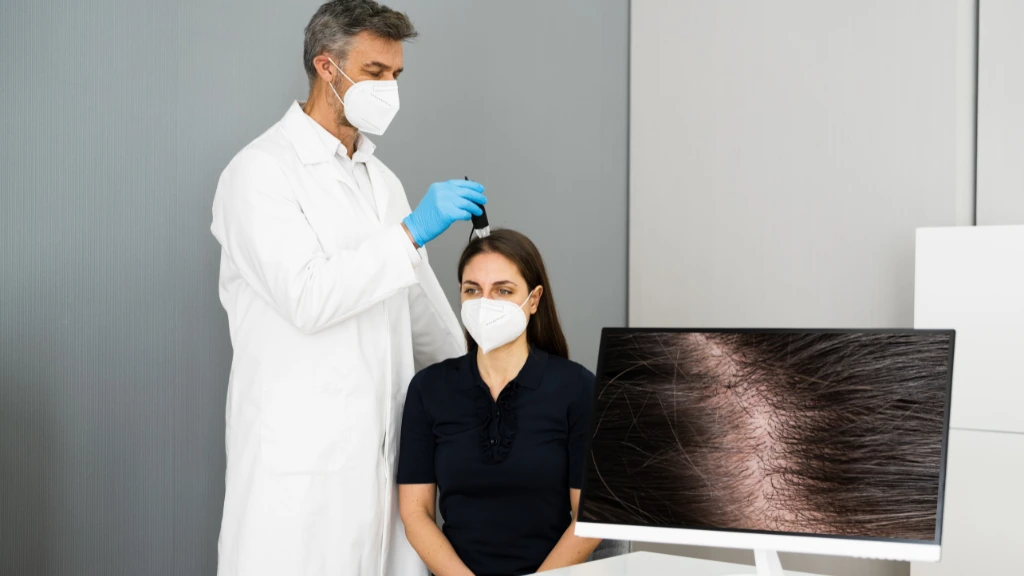Cold weather can be harsh on your skin—and your scalp is no exception. Winter often brings dry air, lower humidity, and increased indoor heating, all of which can contribute to dandruff.
But with a few simple changes to your routine, you can keep your scalp healthy and your hair flake-free.
You May Also Like: Managing Asthma Requires Care and Consistency
Why Does Dandruff Worsen in Winter?
Dandruff occurs when the scalp sheds excess skin cells. This can be due to dryness, oil buildup, or an overgrowth of yeast on the scalp. Winter conditions, such as dry air and frequent exposure to heat, can exacerbate these issues.
Understanding the root causes can help you tackle dandruff effectively. Let’s dive into the steps to prevent it during winter.
1. Keep Your Scalp Hydrated
A dry scalp is one of the primary causes of winter dandruff. Cold weather strips your skin of moisture, leading to flakiness.
Solution:
- Use a moisturizing shampoo and conditioner designed for dry scalps.
- Apply natural oils like coconut or argan oil to your scalp weekly.
- Avoid washing your hair with hot water, as it can dry out your scalp. Opt for lukewarm water instead.
2. Choose the Right Shampoo
Using the wrong shampoo can make dandruff worse. Look for products that address scalp health without stripping your hair of its natural oils.
Recommended Ingredients:
- Zinc Pyrithione: Helps fight yeast and reduces flakes.
- Salicylic Acid: Removes dead skin cells.
- Tea Tree Oil: Natural antifungal properties to soothe irritation.
Pro Tip:
Switch between an anti-dandruff shampoo and a hydrating one to maintain balance.
3. Don’t Overwash Your Hair
Washing your hair too often can strip it of natural oils, leaving your scalp dry. However, washing too infrequently can lead to oil buildup, which also contributes to dandruff.
Solution:
- Wash your hair 2–3 times a week.
- If you exercise frequently, rinse your scalp with water or use a mild shampoo.
4. Protect Your Hair from Cold Air
Cold air dehydrates your scalp and hair, making dandruff worse.
Solution:
- Wear a hat or scarf to shield your hair when outdoors.
- Use satin or silk-lined hats to prevent friction and breakage.
- Avoid tight headwear, as it can trap sweat and cause irritation.
5. Adjust Your Diet
Your diet plays a significant role in scalp health. Certain deficiencies can lead to an increase in dandruff.
Foods to Include:
- Omega-3 Fatty Acids: Found in fish, walnuts, and flaxseeds, these help keep your scalp hydrated.
- Vitamin D: A deficiency can worsen dandruff. Try fortified foods or supplements.
- Zinc: Found in beans, nuts, and whole grains, zinc supports healthy skin.
Foods to Avoid:
- Sugary and greasy foods can trigger scalp inflammation.
6. Exfoliate Your Scalp
Just like your skin, your scalp benefits from regular exfoliation. This removes dead skin cells and product buildup, promoting better hair health.
How to Exfoliate:
- Use a gentle scalp scrub or a brush designed for scalp exfoliation.
- Massage your scalp with your fingers or a tool to improve circulation.
- Do this once a week to avoid irritation.
7. Avoid Heat Styling Tools
Frequent use of heat tools can dry out your hair and scalp. This makes dandruff worse during winter.
Solution:
- Minimize the use of blow dryers, curling irons, and straighteners.
- If you must use heat, apply a heat protectant beforehand.
- Let your hair air-dry whenever possible.
8. Stay Hydrated
Dehydration isn’t just a summer problem. Many people drink less water in winter, which can affect skin and scalp health.
Solution:
- Aim for at least 8 glasses of water daily.
- Include herbal teas or warm water with lemon to stay hydrated in colder months.
9. Manage Stress
Stress can trigger or worsen dandruff. Winter holidays and shorter days can contribute to stress, which in turn impacts your scalp.
Solution:
- Practice relaxation techniques like yoga, meditation, or deep breathing.
- Take breaks during the day to unwind.
- Prioritize sleep to give your body time to repair and recover.
10. Avoid Harsh Chemicals
Many hair products contain alcohol or sulfates that can irritate your scalp.
Solution:
- Check product labels and avoid harsh chemicals.
- Opt for natural or sulfate-free shampoos.
- Use minimal styling products to reduce buildup.
11. Use a Humidifier
Indoor heating can dry out the air, leading to a dry scalp and more dandruff.
Solution:
- Invest in a humidifier to add moisture to the air in your home.
- Place it in your bedroom or other spaces where you spend most of your time.
12. Seek Professional Help if Needed
If dandruff persists despite trying these remedies, it’s time to consult a dermatologist. Chronic dandruff could indicate conditions like seborrheic dermatitis or psoriasis.
What to Expect:
- Your doctor may prescribe medicated shampoos or topical treatments.
- They can also recommend lifestyle changes tailored to your condition.
Final Thoughts
Winter dandruff doesn’t have to ruin your season. By making simple changes to your hair care routine, you can keep your scalp healthy and flake-free.
Remember, consistency is key. Whether it’s moisturizing your scalp, eating the right foods, or reducing stress, small steps lead to big results. Enjoy a healthier scalp and hair this winter!










